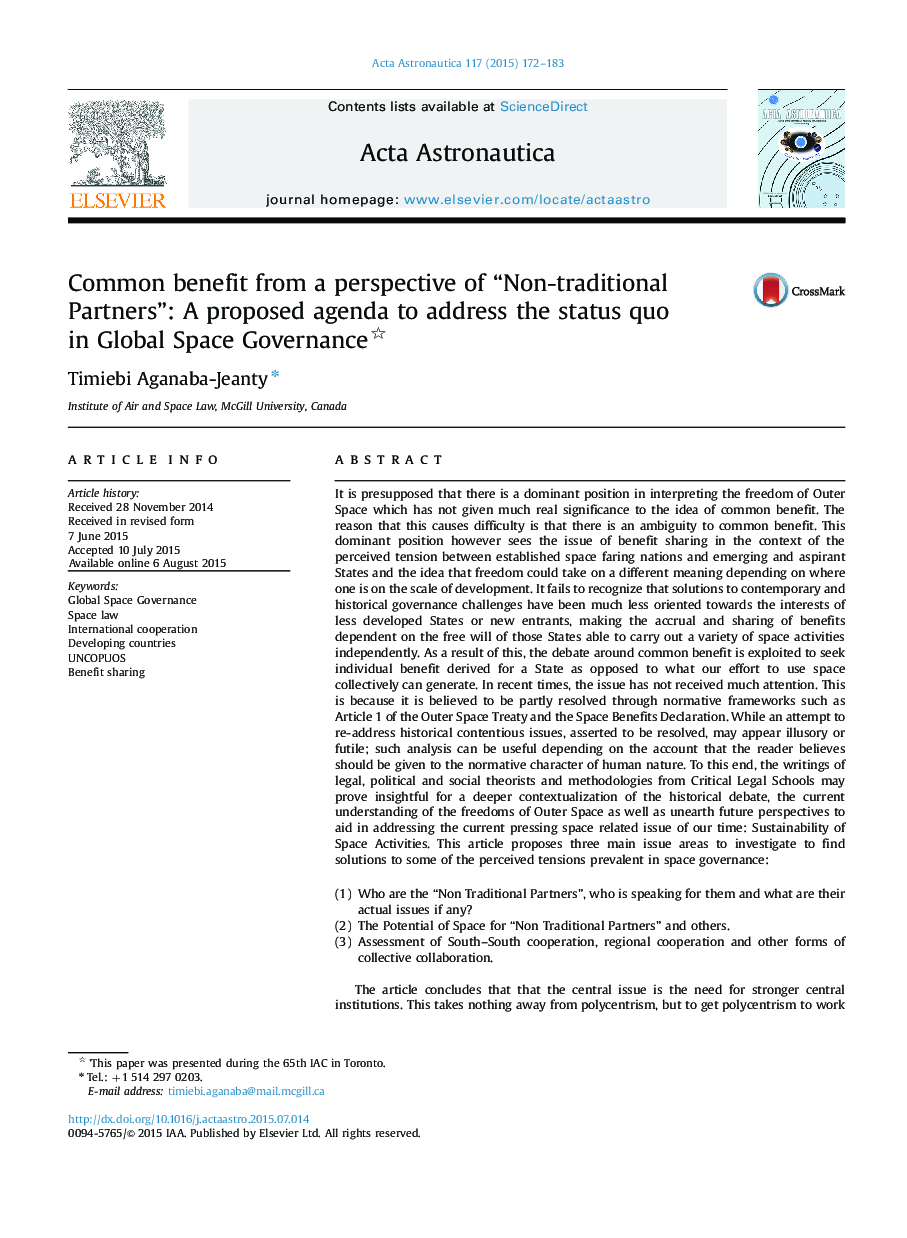| کد مقاله | کد نشریه | سال انتشار | مقاله انگلیسی | نسخه تمام متن |
|---|---|---|---|---|
| 1714332 | 1519937 | 2015 | 12 صفحه PDF | دانلود رایگان |
• Global Space Governance is in a state of flux requiring new thinking and approaches.
• A re-reading of space law through a CAILian (Cosmopolitan Approaches to International Law) lens is suggested.
• Three issue areas of focus are proposed to investigate solutions to perceived tensions.
• Functioning not static central global institutions are required in an age of polycentricism.
It is presupposed that there is a dominant position in interpreting the freedom of Outer Space which has not given much real significance to the idea of common benefit. The reason that this causes difficulty is that there is an ambiguity to common benefit. This dominant position however sees the issue of benefit sharing in the context of the perceived tension between established space faring nations and emerging and aspirant States and the idea that freedom could take on a different meaning depending on where one is on the scale of development. It fails to recognize that solutions to contemporary and historical governance challenges have been much less oriented towards the interests of less developed States or new entrants, making the accrual and sharing of benefits dependent on the free will of those States able to carry out a variety of space activities independently. As a result of this, the debate around common benefit is exploited to seek individual benefit derived for a State as opposed to what our effort to use space collectively can generate. In recent times, the issue has not received much attention. This is because it is believed to be partly resolved through normative frameworks such as Article 1 of the Outer Space Treaty and the Space Benefits Declaration. While an attempt to re-address historical contentious issues, asserted to be resolved, may appear illusory or futile; such analysis can be useful depending on the account that the reader believes should be given to the normative character of human nature. To this end, the writings of legal, political and social theorists and methodologies from Critical Legal Schools may prove insightful for a deeper contextualization of the historical debate, the current understanding of the freedoms of Outer Space as well as unearth future perspectives to aid in addressing the current pressing space related issue of our time: Sustainability of Space Activities. This article proposes three main issue areas to investigate to find solutions to some of the perceived tensions prevalent in space governance:(1)Who are the “Non Traditional Partners”, who is speaking for them and what are their actual issues if any?(2)The Potential of Space for “Non Traditional Partners” and others.(3)Assessment of South–South cooperation, regional cooperation and other forms of collective collaboration.The article concludes that that the central issue is the need for stronger central institutions. This takes nothing away from polycentrism, but to get polycentrism to work there is a need for functioning and not static global institutions. We must see how networks effects to produce in maximizing space benefits and this can only be achieved through the connection between strengthened global institutions and local initiatives.
Journal: Acta Astronautica - Volume 117, December 2015, Pages 172–183
